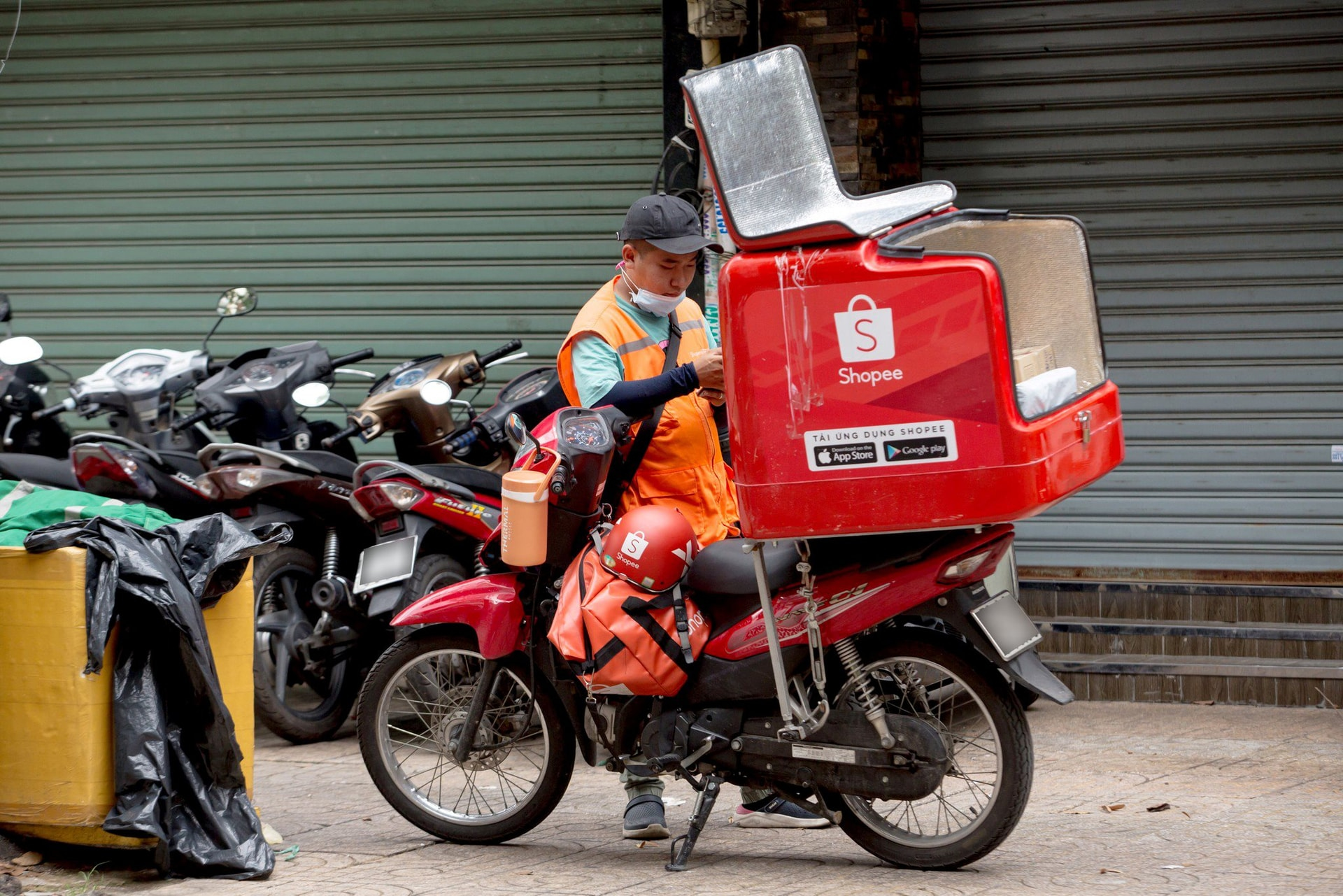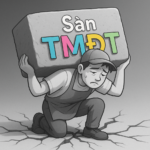The first half of 2025 witnessed a vibrant landscape for the authentic fashion industry on e-commerce platforms. The total revenue from the three giants Shopee, Lazada, and Tiki exceeded VND 9,000 billion, a 21% increase compared to the same period in 2024.
While many domestic brands had to downsize their direct retail channels, e-commerce emerged as a lifesaver and a promising playground. Notably, Vietnamese brands asserted their dominance, reflecting the robust growth of domestic fashion and a shift in the consumption behavior of young consumers.

The revenue of the authentic fashion industry on the three major platforms, Shopee, Lazada, and Tiki, surpassed the VND 9,000 billion mark, growing by 21% year-on-year. (Illustrative image)
According to YouNet ECI data, the total revenue of the authentic fashion category (excluding accessories) reached VND 9,069 billion – the highest ever, with Vietnamese brands capturing a significant market share. This trend indicates a clear shift as domestic brands increasingly dominate the online marketplace, especially in the men’s fashion segment. The advantage stems from their agility in capturing trends, offering minimalist, convenient products, and catering to the green and convenient shopping preferences of the younger generation.
In the first six months, Coolmate recorded revenue of over VND 64 billion, a 37% increase year-on-year. This success stems not only from their strategy of offering minimalist products for men but also from their expansion into women’s fashion, quality improvements, collaborations with KOLs, and the creation of relatable content. Suggestive videos on outfit coordination and everyday situations like running or swimming have helped Coolmate build a loyal customer community.
Another notable brand is Calem.Club, a Gen Z-focused label that ranked in the top 10 according to YouNet ECI. Without any offline stores, Calem.Club fully leveraged the “shoppertainment” trend, guiding buyers from trendy TikTok content to a direct shopping experience through livestreaming on TikTok Shop and Shopee. This unique approach helped the young brand quickly establish its position.
In contrast to the closure of numerous physical stores in late 2024, the beginning of 2025 witnessed an e-commerce boom, generating billions of dollars in revenue and propelling many Vietnamese brands to new heights.
According to YouNet, the success of Coolmate and Calem.Club is just a slice of the bigger picture: brands that effectively combine content tailored to social media tastes with professional operations on e-commerce platforms will unlock the market and win over the younger generation of consumers.
Crafting a Compelling and SEO-Friendly Headline: “Leveling the Playing Field: Amendments to the E-Commerce Law”
The proposed Electronic Trade Act is set to revolutionize the digital landscape, fostering a level playing field for businesses and empowering users with greater choice. This landmark legislation aims to create a fair and transparent environment, where online enterprises can thrive and consumers can make informed decisions. With a focus on regulating the industry, the act promises to shape a vibrant and competitive market, ensuring a win-win situation for all stakeholders involved.
“Celebrating Vietnam: A Lotte Mart 2/9 Shopping Extravaganza with Huge Discounts!”
Celebrating the 80th National Day on September 2nd, LOTTE MART transforms its supermarket space into a vibrant festival with a massive promotion of up to 50% off and hundreds of attractive offers, providing customers with an emotional and cost-saving shopping experience.





![[What’s Happening] “Neighborhood Chief” Steps In: Livestreaming God’s Outrageous Ads Get Shut Down!](https://xe.today/wp-content/uploads/2025/08/chuyen-j-d-150x150.jpg)














